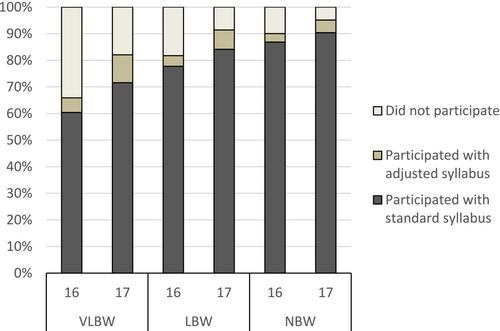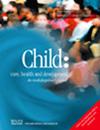Low and very low birthweight disadvantage in compulsory education achievement and the transition to upper secondary education in the Finnish birth cohorts of 1987 to 1997
Abstract
Background
We compared the educational achievements of very low-birthweight (VLBW) and low-birthweight (LBW) adolescents (ages 16 to 19) to those of their normal-birthweight (NBW) peers in the complete Finnish birth cohorts of 1987 to 1997. We focused on three key phases of the education process: the end of compulsory education (9th-grade completion), and the transition to and the completion of upper secondary-level education.
Methods
We used register data on grades, educational transitions and completed education. We employed multiple indicators on the progression of the education process and estimated population-level and within-families linear probability (LPM) models with robustness checks at the population level using logistic regression. We tested whether parental education and the child's sex modify the association between (V)LBW and educational achievement.
Results
Results of both descriptive analysis and the population-level and within-family LPM models indicate that (V)LBW is associated with an increased risk of not being able to keep up with the normative education process and to compete for upper secondary education study places at the end of compulsory education. The modifying effect of parental education was robust, whereas that of the child's sex was not. Among (V)LBW students who were able to keep up with the normative education process, (V)LBW was not associated with a lower grade point average or with a meaningfully lower probability of completing upper secondary education by the normative age.
Conclusions
The upper secondary-level educational choices and achievements of the children born with (V)LBW who managed to complete the standard compulsory education curriculum and complete the transition to upper secondary-level education within the expected time did not, in essence, differ from those of the NBW children. Some specific characteristics of the Finnish education system likely contributed to these results, such as the grading at compulsory education being only relatively loosely standardized.


 求助内容:
求助内容: 应助结果提醒方式:
应助结果提醒方式:


